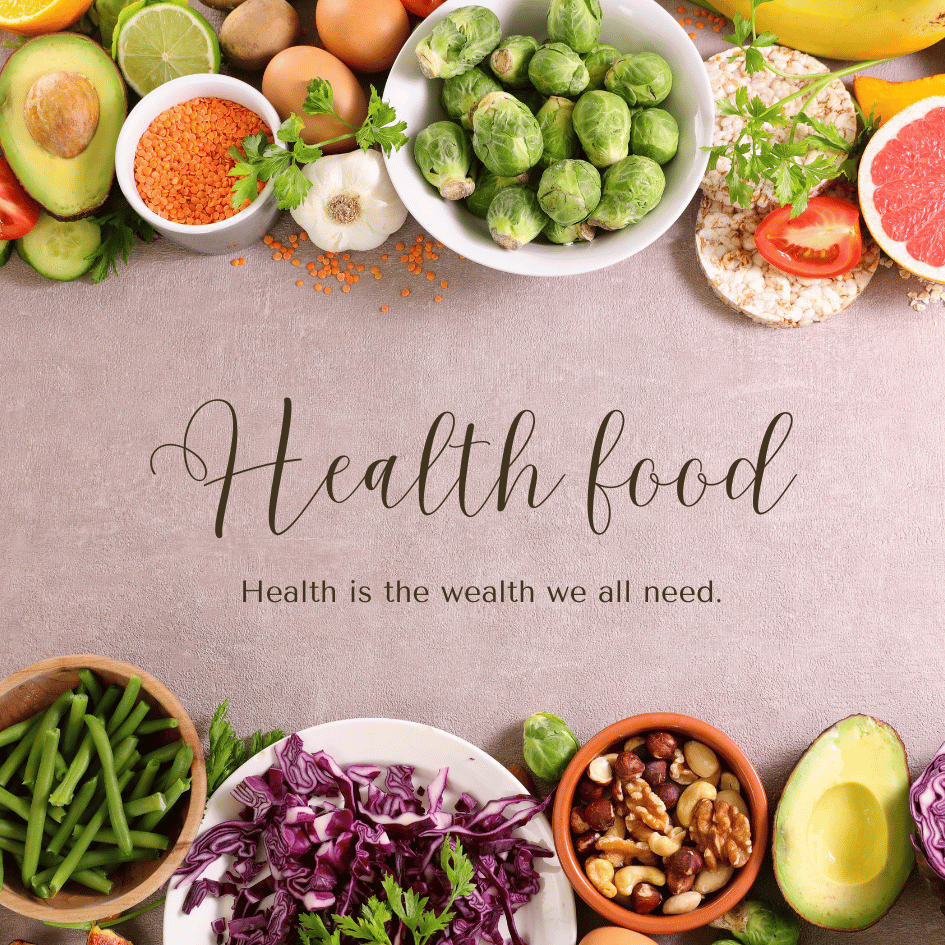In today’s fast-paced world, many people overlook the benefits of healthy eating. Busy schedules, processed foods, and unhealthy lifestyle habits often take priority over nutrition. However, eating a balanced and nutrient-rich diet is one of the most powerful ways to improve overall health, prevent diseases, and boost energy levels.
In this article, we’ll explore the top benefits of healthy eating, why it matters for long-term well-being, and how you can start adopting healthier eating habits today.
What is Healthy Eating?
Healthy eating involves consuming a diverse range of foods that provide essential nutrients, vitamins, and minerals. A balanced diet includes:
- Fruits and vegetables
- Whole grains
- Healthy fats (avocados, olive oil, nuts, seeds)
- Adequate water intake
It also means limiting processed foods, sugary snacks, and trans fats, which are linked to obesity, diabetes, and heart disease.
Top Benefits of Healthy Eating
1. Boosts Energy Levels
When you eat nutritious foods, your body receives the fuel it needs to function efficiently. Complex carbohydrates like whole grains, brown rice, and oats provide long-lasting energy. In contrast, sugary snacks cause quick spikes and crashes in blood sugar, leaving you tired.
Healthy eating ensures a steady supply of energy, helping you stay active, focused, and productive throughout the day.
2. Supports a Healthy Weight
One of the biggest benefits of healthy eating is weight management. A balanced diet helps prevent excessive weight gain and reduces the risk of obesity-related illnesses.
- High-fiber foods, such as fruits, vegetables, and whole grains, keep you full for longer.
- Lean proteins promote muscle growth and repair.
- Healthy fats keep cravings in check.
Instead of following restrictive diets, adopting long-term healthy eating habits ensures sustainable weight control.
3. Improves Heart Health
Heart disease is one of the leading causes of death worldwide, but healthy eating can lower the risk significantly.
- Foods rich in omega-3 fatty acids (salmon, walnuts, chia seeds) reduce bad cholesterol.
- Whole grains improve blood circulation.
- Vegetables and fruits provide antioxidants that protect the heart.
By avoiding trans fats, processed meats, and excessive salt, you can maintain healthy blood pressure and cholesterol levels.
4. Strengthens the Immune System
A strong immune system is essential for fighting infections, viruses, and chronic illnesses. Nutrient-dense foods provide the body with essential vitamins and minerals such as:
- Vitamin C from oranges, kiwis, and bell peppers
- Vitamin E from almonds and sunflower seeds
- Zinc from beans, nuts, and seafood
- Probiotics from yogurt and fermented foods
These nutrients work together to maintain a strong and active immune system.
5. Enhances Brain Function
Healthy eating benefits not just the body but also the mind. Research indicates that specific foods can enhance memory, concentration, and mental clarity.
- Omega-3 fatty acids (fish, flaxseeds) improve cognitive function.
- Leafy greens (spinach, kale) are linked to slower mental decline.
- Berries contain antioxidants that protect brain cells from damage.
Eating brain-boosting foods regularly can help prevent conditions like dementia and Alzheimer’s.
6. Improves Digestion
Fiber-rich foods such as fruits, vegetables, legumes, and whole grains support a healthy digestive system. Fiber prevents constipation, promotes gut health, and lowers the risk of colon cancer.
Additionally, probiotics from foods like yogurt, kimchi, and kefir maintain healthy gut bacteria, which play a key role in digestion and immunity.
7. Promotes Healthy Skin and Hair
Nutrition directly affects how your skin and hair look. A diet rich in vitamins, minerals, and antioxidants can give you glowing skin and strong, shiny hair.
- Vitamin C helps produce collagen, which keeps skin youthful.
- Omega-3 fatty acids reduce inflammation and dryness.
- Protein supports hair growth and strength.
By eating well, you reduce the need for expensive skincare products since your beauty starts from within.
8. Reduces Risk of Chronic Diseases
Unhealthy diets are one of the main causes of chronic illnesses, such as:
- Type 2 diabetes
- High blood pressure
- Stroke
- Osteoporosis
- Certain types of cancer
Healthy eating lowers these risks by stabilizing blood sugar, reducing inflammation, and keeping your body in balance.
7. Improves Mental Health
Food plays a major role in emotional well-being. Studies suggest a strong connection between diet and mental health conditions such as depression and anxiety.
- Foods rich in B vitamins (whole grains, eggs) reduce stress.
- Omega-3 fatty acids help fight depression.
- Complex carbs regulate serotonin, the “happy hormone.”
By fueling your brain with proper nutrition, you can improve mood, reduce stress, and enhance overall mental well-being.
8. Supports Longevity and Quality of Life
Perhaps the most powerful benefit of healthy eating is that it can help you live longer and healthier. People who eat a balanced diet rich in fruits, vegetables, whole grains, and lean proteins are less likely to develop life-threatening diseases.
Healthy eating promotes vitality, mobility, and independence as you age, ensuring a better quality of life.
How to Start Eating Healthy
Adopting a healthier diet doesn’t mean you need to give up your favorite foods overnight. Small changes can lead to big results over time.
Here are some simple tips:
- Plan your meals – Preparing meals in advance prevents unhealthy last-minute choices.
- Choose whole foods – Opt for natural, unprocessed options over packaged snacks.
- Stay hydrated – Drink at least 8 glasses of water daily.
- Control portion sizes – Eating too much healthy food can still cause weight gain.
- Limit sugar and salt – Excess sugar leads to weight gain, while too much salt raises blood pressure.
- Cook at home – Homemade meals allow you to control ingredients and portion sizes.
Final Thoughts on the Benefits of Healthy Eating
Healthy eating is more than just a diet – it’s a lifestyle. The benefits extend beyond physical health to mental clarity, emotional balance, and overall happiness. By making simple but consistent changes to your diet, you can enjoy more energy, better skin, a stronger body, and a longer life.
Start small, stay consistent, and remember: every healthy choice you make today is an investment in your future.

